
In review: Les contes d'Hoffmann
ReviewThe latest revival of John Schlesinger’s production of Les contes d’Hoffmann is currently onstage at the Royal Opera House, and it’s one that seems to age well. It was our first time seeing the 1980 production by the late film director (Midnight Cowboy, Sunday Bloody Sunday), and it was unexpectedly comforting to see that solid, hinting-at-sepia-tone of the 1970s and 1980s (perhaps in the same way that Zeffirelli’s La bohème is like coming home).
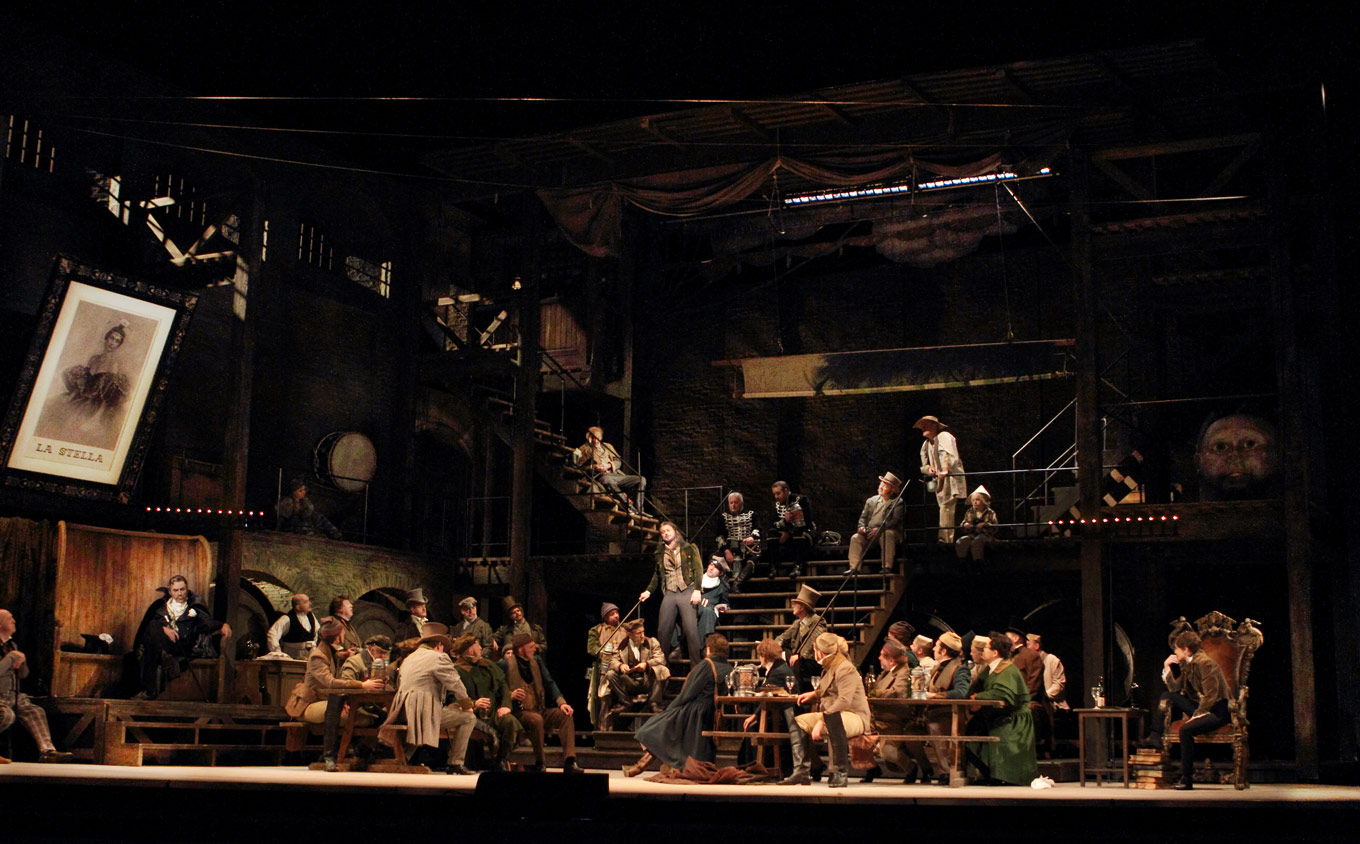
The marathon that is Les contes d’Hoffmann is, in Schlesinger’s production, equal parts kooky humour and heartwrenching catharsis, and that mix was led heroically by tenor Vittorio Grigòlo in the title role. His Hoffmann was strapping, sexy, and desperate, and his open-throated, silvery sound was utterly thrilling. He sang with an extraordinary range of colour, and he took us through the vocal evolution of Hoffmann, as he accumulates more and more emotional baggage from his failed affairs. His shy, optimistic encounter with Olympia transforms into tormented, self-doubting passion for Giulietta, and ends with what felt like a beautiful wail for his lost Antonia.
Where Grigòlo was unrestrained and passion-seeking, mezzo Kate Lindsey was calculated and clear as Nicklausse/The Muse. She was a friendly wingman to her tormeted poet friend, never preaching, and her Nicklausse emboded the bits of reason still left in Hoffmann. She earned well-deserved applause for her Olympia gag, and her “Violin Aria” was rich and expansive, making us eager to hear her in some Strauss.
Famed baritone Thomas Hampson sings the Four Villains, in an odd mix of malevolence and cartoonish buffoonery. He had surprising power up top, in those moments of the score found uncomfortable by many Villains, yet the low writing was muffled instead of menacing. Perhaps it was his lean toward the buffo sides of Lindorf, Coppélius, Dappertutto, and Dr. Miracle, yet Hampson struggled with intonation and rhythmic precision.
Russian soprano Sofia Fomina made her role debut as Olympia, opera’s favourite fem-bot. She had the doll-like physicality down, yet she seemed less than comfortable in her famous aria. Maestro Evelino Pidò, on several occasions, seemed stodgy and stuck with his tempi, and it seemed clear that Fomina wanted a faster tempo than he had set; perhaps out of nerves or discomfort, her tendency to rush, perhaps gloss over a handful of notes, made for some shaky ensemble.
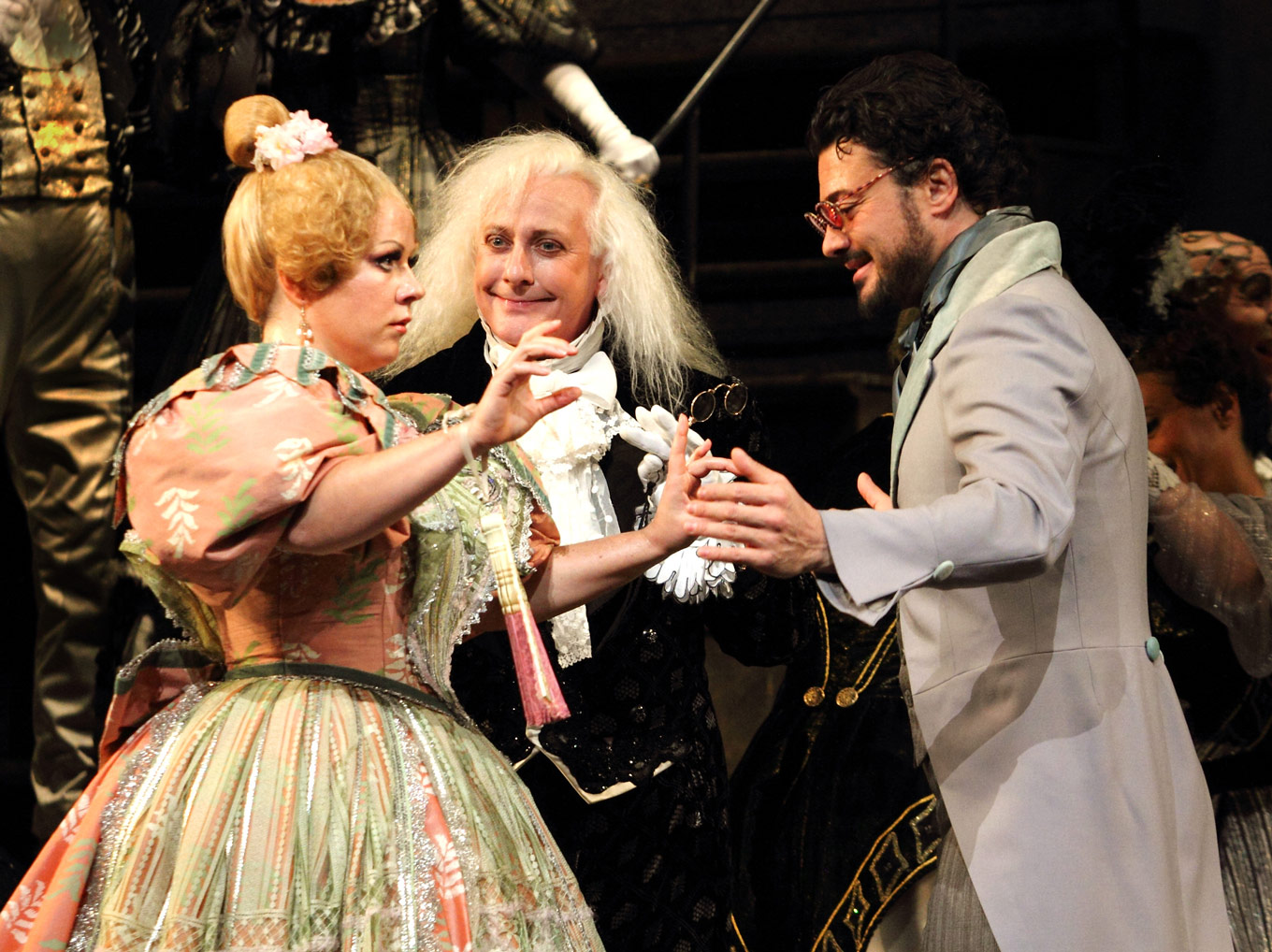
Christine Rice was a lush, womanly Giulietta, a voice to match the exquisite toga-party-esque set (we want those chandeliers…). She even seemed to fool the audience into thinking her genuine with her affections towards Hoffmann. Some of Offenbach’s best music is in this act, and Rice’s duet with Grigòlo was utterly satisfying.
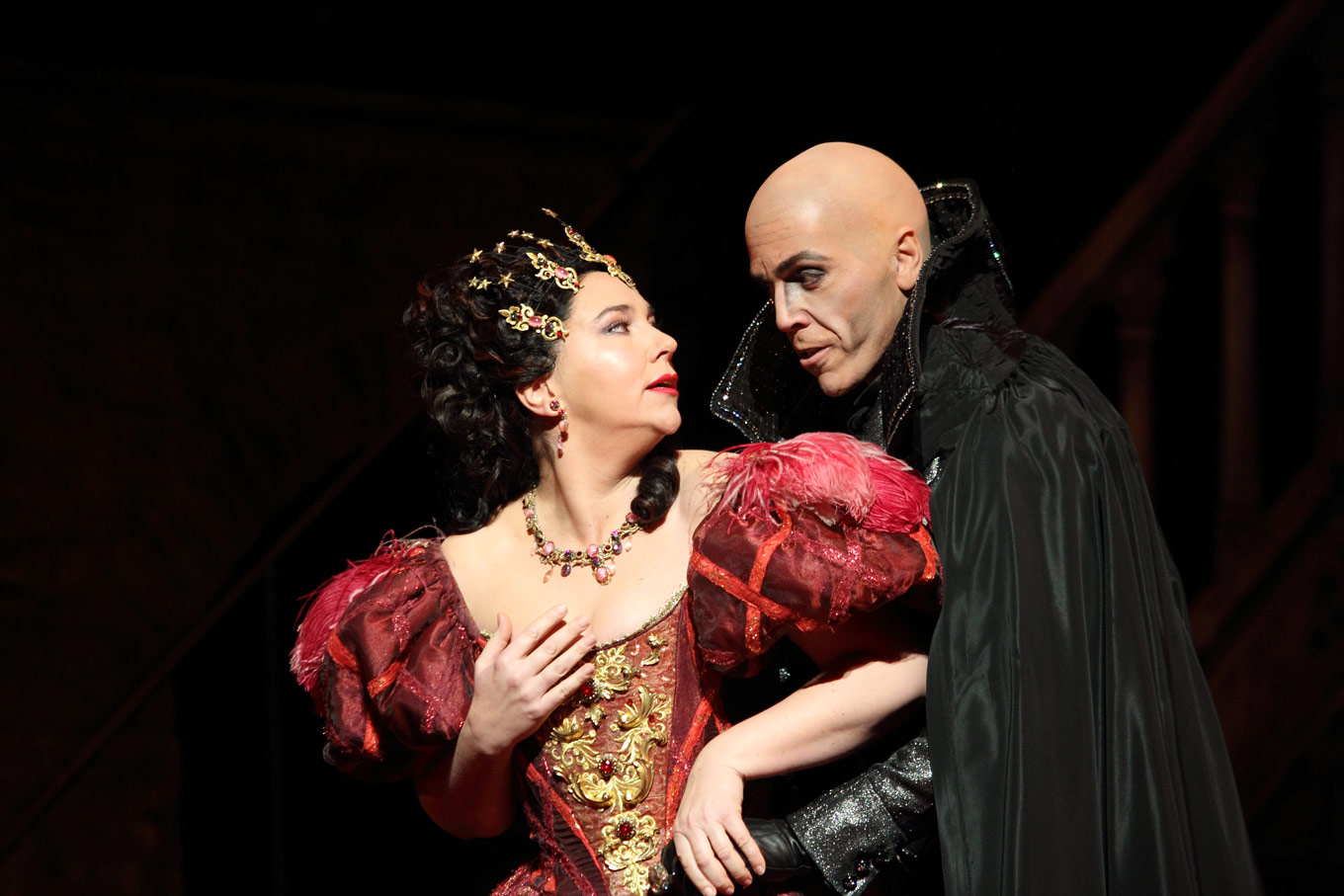
Sonya Yoncheva’s Antonia was full of warmth, a beautiful meta-image of an artist in love with making art. There seemed to be honest love and respect between Antonia and Hoffmann, and their air-piano duet was adorable. Yoncheva is a total force - one has to be to make it through the end of that act - and she kept the subtle moments in the score audible, despite the vocal demands.
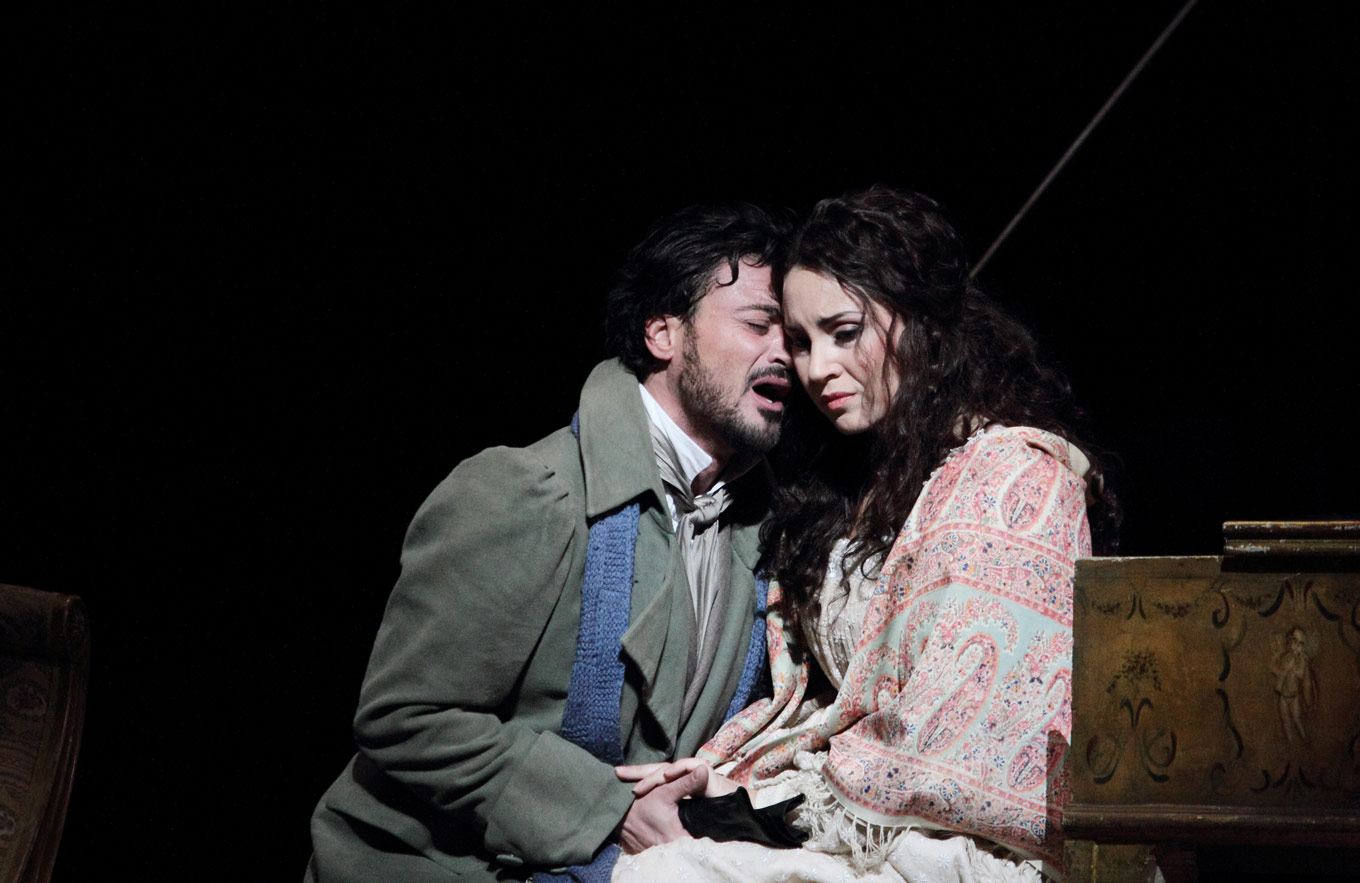
We’re used to the order of the acts being, Olympia - Antonia - Giulietta, but in this production, Antonia’s act comes last. Though there’s something undeniably “climactic” about the music in Giulietta’s act, placing Antonia last held some powerful significance. Nicklausse’s aria - now in the final act - had a sense of “don’t give up!” about it, packed with meaning from the first two stories of love gone wrong. It was also a touching moment of tragedy to see that after Hoffmann’s one-sided affairs with Olympia and Giulietta, his love with Antonia was true, and reciprocal.
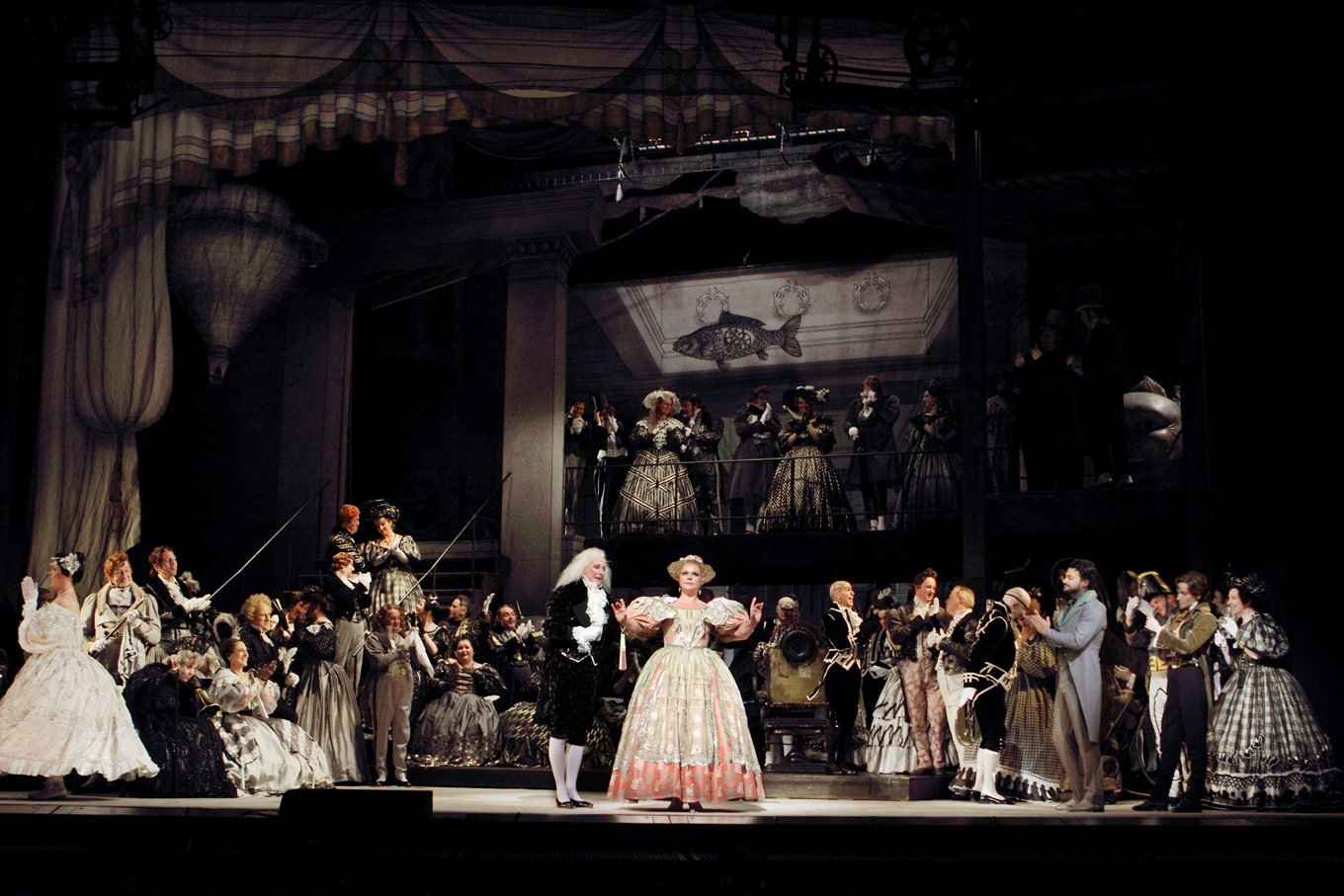
The supportive cast was strong, an organic crew of characters who manage impressively layered performances with relatively little time onstage. We wanted more scene-stealing from Vincent Ordonneau as Cochenille, Pittichinaccio, and Frantz; at times it wasn’t clear where to look among the busy sets, and Ordonneau wasn’t always easy to spot. Undoubtedly, he could have made a bigger splash with Frantz’s aria, given more options.
The ROH Chorus were refined and clean in their sound, despite a few moments where they fell into traps and rushed ahead. Maestro Pidò brought out of the Orchestra of the Royal Opera House a lush, flexible sound that left room for humour.
Les contes d’Hoffmann runs at the Royal Opera House until December 3. For details and ticket information, click here.


Comments